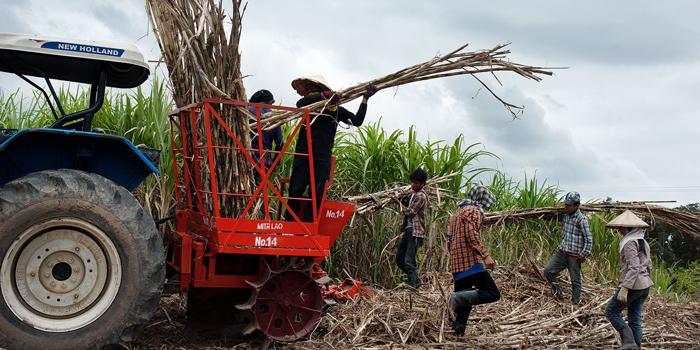Objective
This is a regional programme that aims to promote social protection for an increasingly vulnerable groups in Cambodia, Vietnam and Laos, namely marginalised workers.
The focus is put on increased effectiveness of national advocacy for more inclusive social protection frameworks, implemented by citizens who will exert their rights.
We will achieve an impact nationally by using a combination of strategies: (1) working with a wider constituency which covers more than 774 marginalised workers’ groups, (2) creation of national and widely supported advocacy coalitions for specific demands for social protection, (3) ensuring that representatives are empowered for social dialogue thanks to credible arguments, competences and members’ support, (4) ability to grasp or create advocacy opportunities via media, public campaigns and lobbying, supported by a power and stakeholder analysis, (5) cooperation across borders in regional networks to jointly monitor the rollout of the ASEAN Action Plan for Social Protection, (6) a joint focus on 3 crucial issues: increased inclusiveness, reduced gender gap and increased funding for social protection, and (7) use of peer pressure amongst ASEAN countries resulting from the ASEAN Action Plan. We will work with 15 partners in 3 countries and with 1 regional network, all supported by 6 stakeholders that offer expertise, competences or capacity-building. We expect positive impact in terms of increased social and economic resilience for about 200,000 citizens.
In Laos, we are working with four partners (see details below) and we expect to reach 13,910 beneficiaries.
Project period
01/01/2017-31/12/2021 (60 months)
Target outcomes in Laos
1: About 13,910 formal and informal workers in 13 provinces, in particular women, are better organised and can exert their rights by influencing the relevant decision makers to expand and deliver social protection more effectively and equitably.
2: Local groups of marginalised workers are better organised, demonstrate democratic leadership, have better knowledge of their rights and have the capacity to develop gender-sensitive proposals for changes in policies or practices that improve their working and living conditions.
3: Partners and their local leaders have developed a better knowledge of Social Protection standards, including identifying proposals for policy and practice change at national or local level, and can generate support from other civil society actors and external stakeholders as allies for their cause.
4: Partners, their local leaders and their coalitions have increased influence amongst external actors regarding proposals for policy and practice change for better social protection at both local and national level.
5: Partners have increased organisational strength in terms of capacity to liaise with others, to carry out their work efficiently and to support local groups to increase their bargaining power.
Project partners
Lao Federation Trade Union (LFTU)
Community Association for Management Knowledge in Development (CAMKID)
Environment Conservation and Community Development Association (ECCDA)
Home Net Laos (HNL)
Contributing donors
Directorate-General for Development Cooperation and Humanitarian Aid, Belgium
